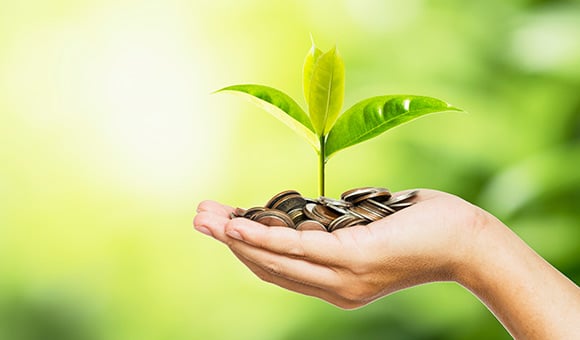Whether it’s called Corporate Social Responsibility (CSR), Sustainability, or Environmental, Social, and Governance (ESG), the idea that businesses could do better business while reducing their footprint and avoid greenwashing has been very popular over the past 20 years.
But how much impact on environmental problems have these efforts actually had?
On one hand, the number of companies filing CSR statements has increased 100 times since 2000. At the same time, the Global Sustainable Investment Alliance reported that “socially responsible investments” have ballooned to $30 trillion. The idea that companies could profit from doing good certainly has some numbers backing it.
On the other hand, carbon emissions have continued their rise over the same 20-year-period, and environmental problems continue apace. Further, Barclay’s bank studied holdings of sustainable and traditional investment mutual funds and found no difference in the types of securities held in the funds or their investment strategies.
Is “sustainability” as part of CSR, then, just a paper tiger? Yes, as it’s currently practiced, wrote Kenneth Pucker, former COO of Timberland, Inc. and now lecturer at Boston and Tufts universities, in a recent Harvard Business Review article. But, he added, there is a better way to demonstrate sustainability.
In its current state, sustainable practice reporting isn’t working well. “Measurement is often nonstandard, incomplete, imprecise, and misleading. Worse yet, the focus on reporting may actually be an obstacle to progress—consuming bandwidth, exaggerating claims, and distracting from the very real need for changes in mindsets, regulation and corporate behavior.”
Pucker sees two major areas that need drastic improvement to bring more meaning to CSR and sustainability — reporting and investing. On the reporting side, there is little agreement on what to include in sustainability reports and, on top of that, different approaches to measuring certain parameters can make it challenging to compare numbers from one company to the next. There are similar issues with investing. Standard setters and ratings firms are plentiful, using dozens of frameworks for defining sustainability. An MIT study of six ESG ratings firms showed that “ratings from different providers disagree substantially.” Perhaps most importantly, there is very little research looking at the true impact of ESG/CSR investments on the environment or social issues.
Value actions to take
Pucker looks at two directions. One, requiring changes in regulation on corporate behavior, repricing resources to reflect their environmental costs (including opportunity costs of not using sustainable resources), and redirecting how public assets and power are allocated. These changes lie in the hands of governments and outside corporate control.
The other direction offers more direct promise for companies. Initiatives corporations can take include adopting science-based goals related to concrete measures of water use, carbon emissions from suppliers, distributors, employee business travel, and the way products are used by purchasers.
In addition, streamlining and harmonizing reporting standards will reduce the confusion and burden of interpreting multiple reporting and measuring organizations. The European Commission and the International Financial Reporting Standards Foundation are looking at upgrading reporting practices and standards.
What Solenis is doing
For 100 years, Solenis has been committed to improving our sustainability — and the sustainability of our customers.
In the company’s first Sustainability Report, Solenis featured its ValueAdvantage Partner Program, which identifies, documents and measures value brought to its customers with Solenis chemistry, support, service and expertise. Much of that value comes from driving such sustainability goals as water and energy usage reduction, reducing carbon footprints, and limiting waste.
The ValueAdvantage Partner Program resolves a number of reporting and consistency issues that have plagued sustainability programs. It allows a Solenis/customer team to calculate the sustainability impact of a specific project and determine a monetary value. With the program, a Return on Investment (ROI) calculator determines economic and sustainability values. Resulting data from the calculator is entered into a customer record in Solenis’ Salesforce database, providing standardized, credible, global reporting. The database also allows users to categorize specific projects based on the type of savings (effluent treatment, energy use, fresh water, etc.), and by region, corporation or business unit. The savings/value figures can be used for company and customer marketing collateral and public relations efforts, while also quantifying Solenis’ impact on customer sustainability goals. Moreover, a growing database of customer sustainability entries provides a useful resource for experiences and best practices and reference point for future improvements.
In its Sustainability Report, Solenis announced its first Sustainability Award to Marathon Petroleum Corp.’s Catlettsburg, Kentucky, refinery. The facility won for its project that saved 162,060,000 gallons of water a year, by using 18 anthracite filters in its boiler feedwater pretreatments. With its sustainability award Solenis wants to demonstrate what is possible to achieve with best partnerships and engage more partners to drive to meet even more sustainability goals, in line with the UN SDGs.
Solenis also has been recognized for its sustainability work. The company has achieved the Gold Recognition Level (2019 and 2021) for Corporate Social Responsibility (CSR) performance by EcoVadis, a collaborative platform built on international CSR standards, including the Global Reporting Initiative, the United Nations Global Compact and ISO 26000.
There is an urgent need for transformative sustainability practices that deliver meaningful, measurable results. All enterprises, no matter their size, make a big difference. A million little steps can add up to something much bigger.
Learn more about Solenis’ approach to sustainability: visit the strategic vision and sustainability roadmap pages on our website.
